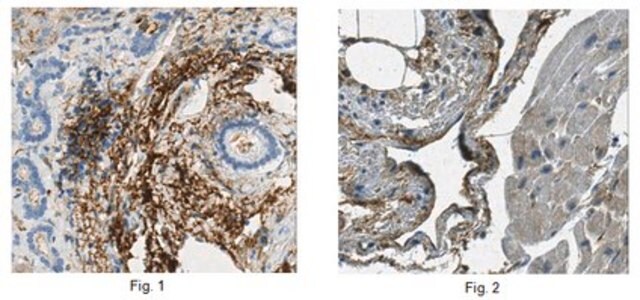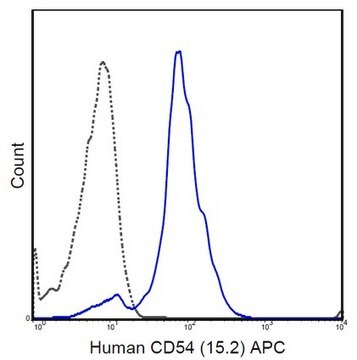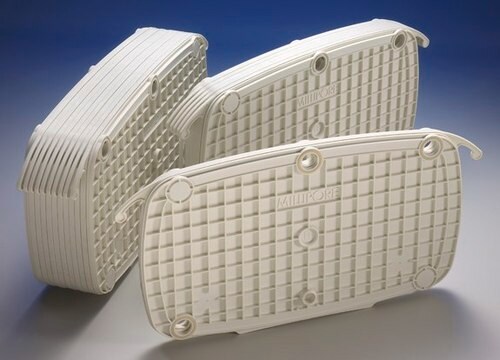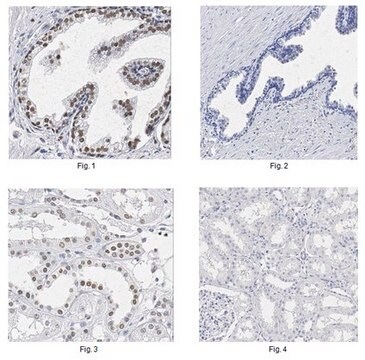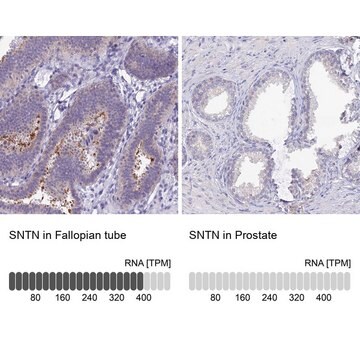MABT400
Anti-Lubricin/Proteoglycan 4, clone 5C11 Antibody
clone 5C11, from mouse
Synonym(s):
Proteoglycan 4, Lubricin, Megakaryocyte-stimulating factor, Superficial zone proteoglycan, Proteoglycan 4 C-terminal part
About This Item
Recommended Products
biological source
mouse
Quality Level
antibody form
purified antibody
antibody product type
primary antibodies
clone
5C11, monoclonal
species reactivity
canine, bovine, goat, rat, porcine, human, guinea pig
technique(s)
immunohistochemistry: suitable (paraffin)
western blot: suitable
isotype
IgG1κ
NCBI accession no.
UniProt accession no.
shipped in
wet ice
target post-translational modification
unmodified
Gene Information
human ... PRG4(10216)
General description
Immunogen
Application
Western Blotting Analysis: A representative lot detected purified human synovial lubricin, as well as lubricin in synovial fluid recovered from patients with osteoarthritis (OA), camptodactyly-arthropathy-coxa vara-pericarditis syndrome (CACP), or from bovine, porcine, goat, dog, rat, and guinea pig (Ai, M., et al. (2015). PLoS One. 10(2):e0116237).
Western Blotting Analysis: A representative lot detected purified bovine synovial lubricin from calf and steer under both reduced and non-reduced conditions (Schmidt, T.A., et al. (2009). Biochim Biophys Acta. 1790(5):375-384).
Quality
Western Blotting Analysis: 1.0 µg/mL of this antibody detected 10 µg of purified Lubricin/Proteoglycan 4 protein.
Target description
Physical form
Other Notes
Not finding the right product?
Try our Product Selector Tool.
recommended
Storage Class Code
12 - Non Combustible Liquids
WGK
WGK 1
Flash Point(F)
Not applicable
Flash Point(C)
Not applicable
Certificates of Analysis (COA)
Search for Certificates of Analysis (COA) by entering the products Lot/Batch Number. Lot and Batch Numbers can be found on a product’s label following the words ‘Lot’ or ‘Batch’.
Already Own This Product?
Find documentation for the products that you have recently purchased in the Document Library.
Our team of scientists has experience in all areas of research including Life Science, Material Science, Chemical Synthesis, Chromatography, Analytical and many others.
Contact Technical Service
